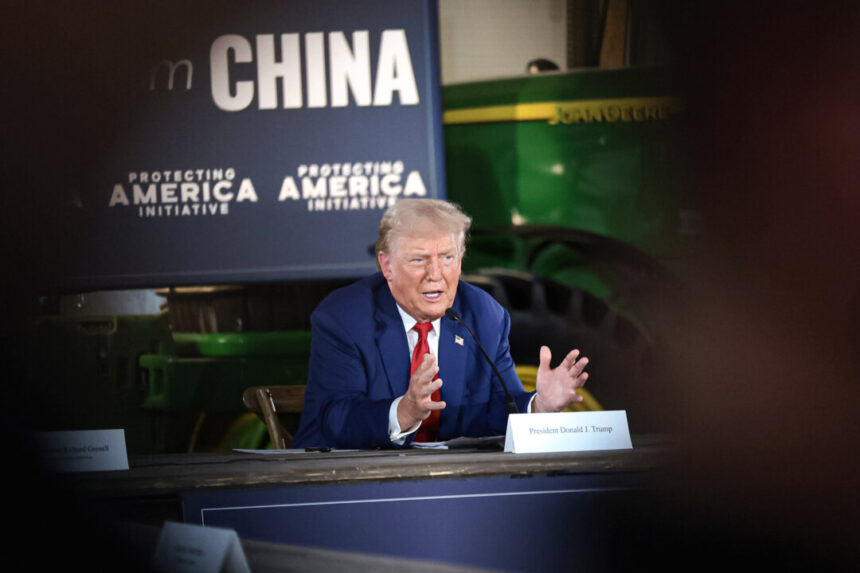Commentary
U.S. President-elect Donald Trump has put Chinese leader Xi Jinping on the defensive by inviting him to the presidential inauguration.
If Xi shows up, he needs to be prepared to confront a list of tough topics—from the Chinese regime’s unfair trade practices to its role in fentanyl exports to the United States and its support to Russia.
If Xi declines the invitation, it could give Trump ammunition to blame the Chinese Communist Party (CCP) leader for future tensions. After all, skipping the ceremony would hardly show a willingness to cooperate, which contradicts Xi’s congratulatory message to Trump, in which he emphasized that both countries stand to gain from cooperation and lose from confrontation.
This situation unfolds against the backdrop of a CCP leadership already on edge.
Under Xi, Beijing has tightened internal controls, engaged in economic and military aggression abroad, and now struggles with economic stagnation.
Because of the economic slump, the dissatisfaction with Xi’s rule is no longer limited to the disenfranchised masses, with discontent now emerging within the CCP.
Even articles in the PLA Daily, the official newspaper of the People’s Liberation Army or the Chinese military, have hinted at the need for more “collective leadership”—code words for defying Xi’s centralized rule. The public airing of grievances points to divisions within the military’s top ranks.
China’s economic woes only add fuel to the fire. With sluggish growth, Beijing has opted for increased centralized control instead of implementing necessary reforms. The recent Central Economic Work Conference highlighted this approach, focusing on top-down measures like expanded government stimulus.
Many insiders see this as a dead-end strategy. Xi’s shift further to the left has sparked widespread frustration, affecting officials, business owners, and the middle class. Past reforms under communist leaders like Deng Xiaoping gave local officials and entrepreneurs room to breathe and didn’t stifle the private sector.
The two main factors that could lead to the CCP’s downfall are a severe economic crisis affecting all social classes and a failed foreign war—reminiscent of the downfall of many ancient Chinese dynasties.
Currently, Xi and the CCP are more vulnerable than ever.
If Xi accepts Trump’s invitation, it could spark a backlash from Chinese nationalists. Communist propaganda has portrayed the United States as an adversary driven by jealousy of the Middle Kingdom’s rise. Further, it would make Xi appear subordinate to Trump on the global stage.
That’s not how a Chinese leader, accustomed to commanding the spotlight, wants to be seen. On the other hand, turning down Trump’s offer could cement Xi as the antagonist in a new chapter of U.S.–China relations.
The bigger picture is that Xi, wrestling with internal dissent and a sputtering economy, faces an unpredictable and unorthodox American president who has no problems deviating from conventional American diplomatic tactics. When dealing with the Chinese regime, any approach that can eliminate any threat to “making America great again” will work for Trump.
The next phase of U.S.–China relations could take a dramatic turn. Both leaders hold significant stakes in the outcome. The future will hinge on who yields first—and who can withstand the escalating pressures of a rapidly changing world.
Views expressed in this article are opinions of the author and do not necessarily reflect the views of The Epoch Times.
Please rewrite this sentence.
Source link







